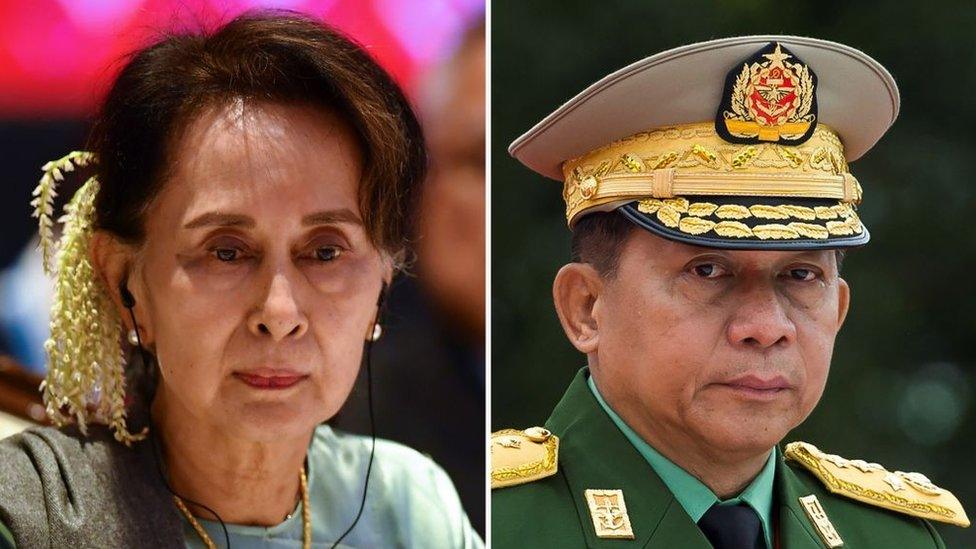Myanmar military extends martial law after bloodiest day since coup
- Published
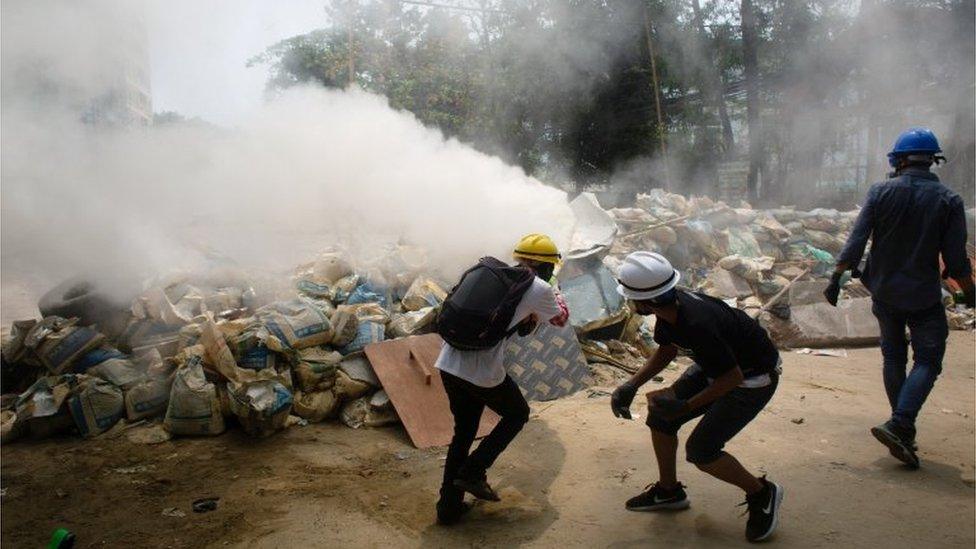
Sunday was the deadliest day for protesters since the 1 February coup
Myanmar's military has imposed martial law across more districts around the country following the deadliest day of protests since February's coup.
About 50 people were reported killed when troops and police opened fire on protesters in various areas on Sunday. Most deaths were in Yangon.
Protesters are demanding the release of ousted civilian leader Aung San Kyi.
She heads the National League for Democracy (NLD) which saw a landslide victory in elections last November.
The military detained most of the NLD leadership after the coup, alleging voter fraud. No proof has been provided.
Ms Suu Kyi has been held at an unknown location since the 1 February coup. She is due to face a slew of charges her supporters say are fabricated.
On Monday, she was due to appear in court, but the virtual hearing was adjourned due to internet problems.
The military initially declared martial law in two districts of Yangon (Rangoon), the country's largest city, on Sunday after Chinese businesses were attacked. Martial law was imposed in several other areas of Yangon and Mandalay on Monday. Protesters there can now be tried in military courts.
Protesters believe China is giving support to the military in Myanmar (also called Burma) but it is unclear who was behind the weekend attacks.
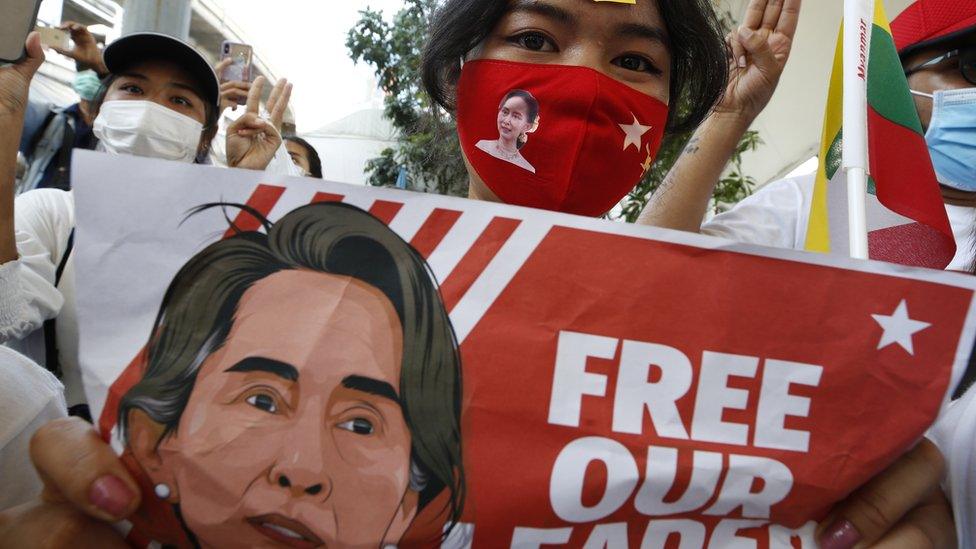
ASSK continues to have overwhelming support
Most of Sunday's casualties were reported in Yangon.
In total, more than 120 protesters have been killed during the crackdown, according to the Assistance Association for Political Prisoners, external (AAPP) monitoring group.
On Monday there were fresh protests in Mandalay and a number of other locations. Casualties were reported after security forces opened fire on protesters in the central towns of Myingyan and Aunglan.

Mistrust of China
Analysis by Michael Bristow, BBC World Service East Asia editor
It is not clear who targeted Chinese-funded factories in Myanmar.
China says the attacks were well planned, with the vandals arriving on motorbikes with weapons and petrol. Some protesters have denied they were involved. But there is widespread anti-China sentiment in Myanmar because of a belief that Beijing is helping the military government there.
This has been partly fuelled by Beijing's refusal to offer outright condemnation of the coup. Initially, Chinese state-run media described it as a simple "cabinet reshuffle".
This taps into a deeper mistrust of China in Myanmar. Some Chinese-funded projects in recent years - including a proposed dam and a copper mine - have been controversial because they appeared to give Beijing unwelcome influence. In the past, China has also seen its image suffer because it has been close to the Burmese army.
China presents itself as an honest broker that supports neither side. For the protesters, that is not an acceptable position.

What is Ms Suu Kyi charged with?
The ousted civilian leader is facing charges including "fear and alarm", illegally possessing radio equipment, and breaking Covid rules.
The charges against Ms Suu Kyi carry sentences of several years in jail and could also lead to her being barred from running in future elections if convicted.
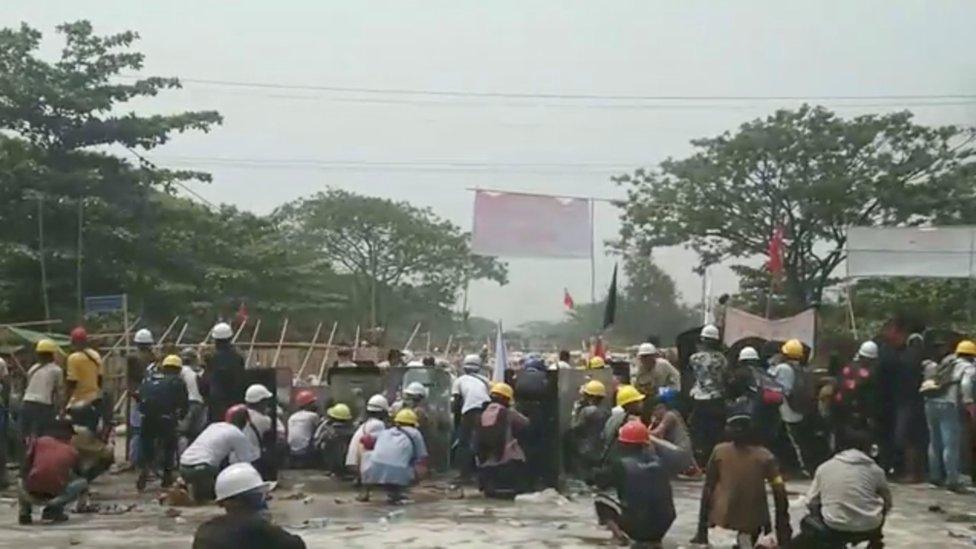
Security forces used live rounds against protesters in Hlaing Tharyar
Last week, the military also accused the ousted leader of illegally accepting $600,000 (£430,000) and 11kg of gold - a claim the NLD denies.
Ousted MPs call for 'revolution'
Some of the ousted MPs have refused to accept last month's coup and have gone into hiding, forming a new group, the CRPH, or Committee for Representing the Union Parliament.
In his first public address, their leader Mahn Win Khaing Than urged protesters over the weekend to defend themselves against the military crackdown during what he called a "revolution".
"This is the darkest moment of the nation and the moment that the dawn is close," he said, adding: "The uprising must win."
The military considers the CRPH illegal, warning that anyone co-operating with them will face treason charges.
What's the background?
Independent international observers have disputed the military's claim of the fraudulent election held in November 2020, saying no irregularities were observed.
Since the coup the military has used lethal force to try to quell protests, leaving dozens dead and prompting widespread international condemnation.
Myanmar nun: 'Kill me instead'
The US has announced sanctions on coup leaders, while steps are also being taken to block access by the military to $1bn of government funds held in the US.
The military has dismissed criticism of its actions, instead blaming Ms Suu Kyi for the violence.

Myanmar profile
Myanmar became independent from Britain in 1948. For much of its modern history, it has been under military rule
Restrictions began loosening from 2010 onwards, leading to free elections in 2015 and the installation of a government led by veteran opposition leader Aung San Suu Kyi the following year
In 2017, Myanmar's army responded to attacks on police by Rohingya militants with a deadly crackdown, driving more than half a million Rohingya Muslims across the border into Bangladesh in what the UN later called a "textbook example of ethnic cleansing"

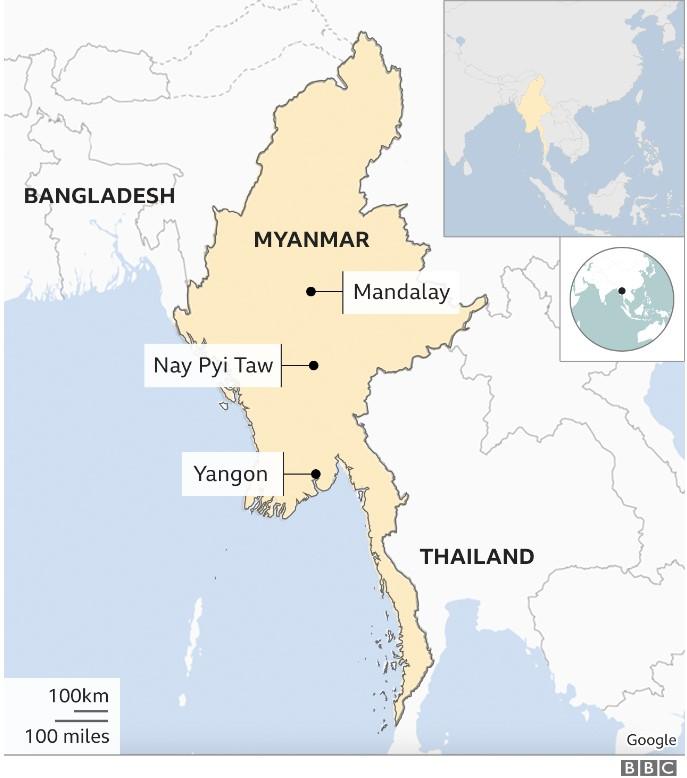
Related topics
- Published10 March 2021
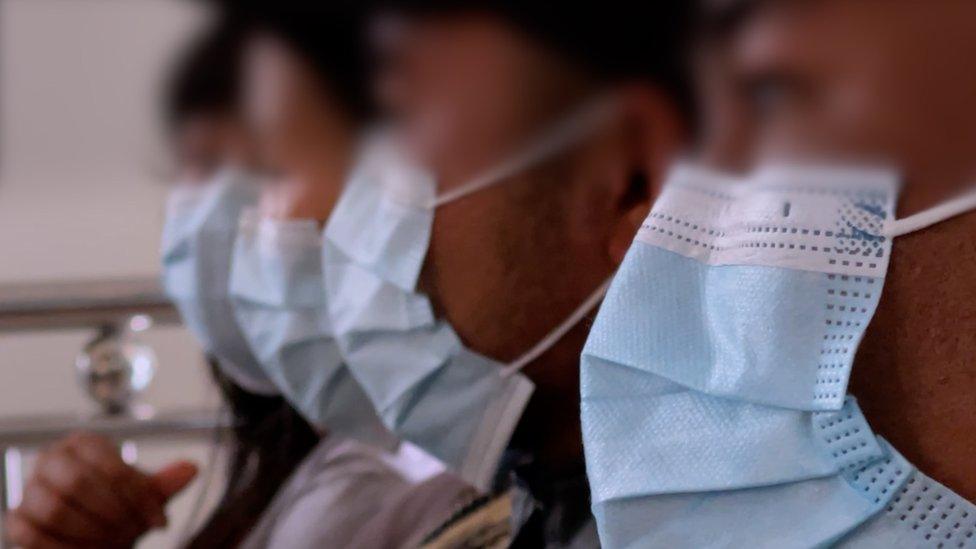
- Published12 March 2021
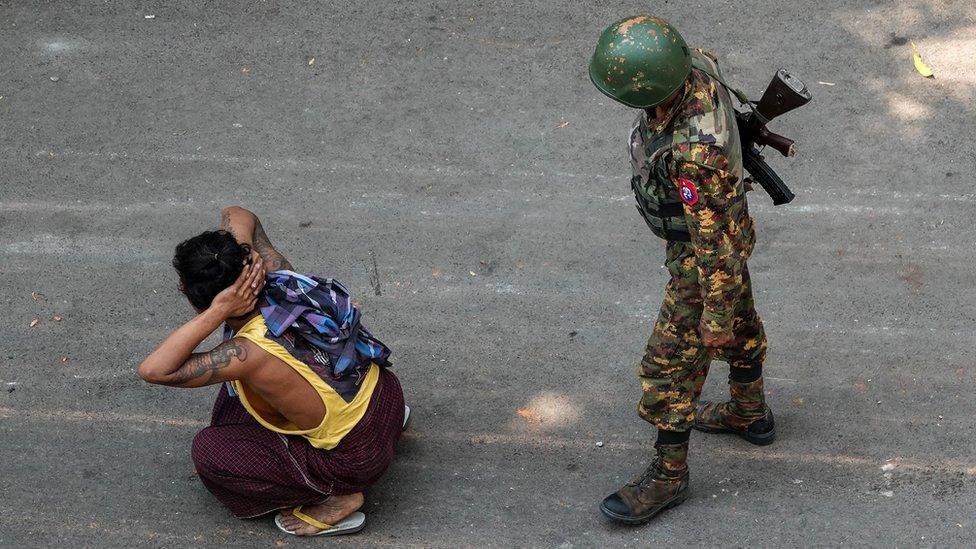
- Published7 March 2021
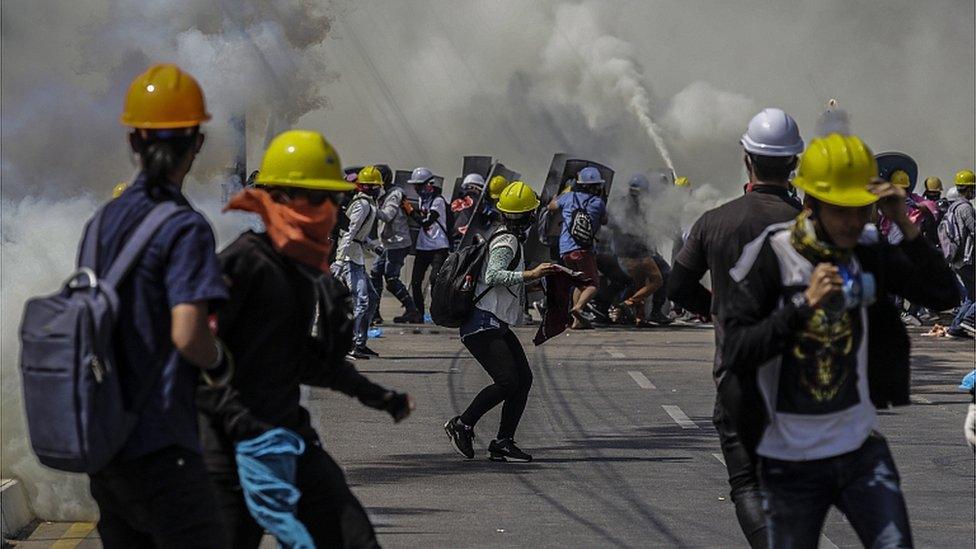
- Published10 March 2021
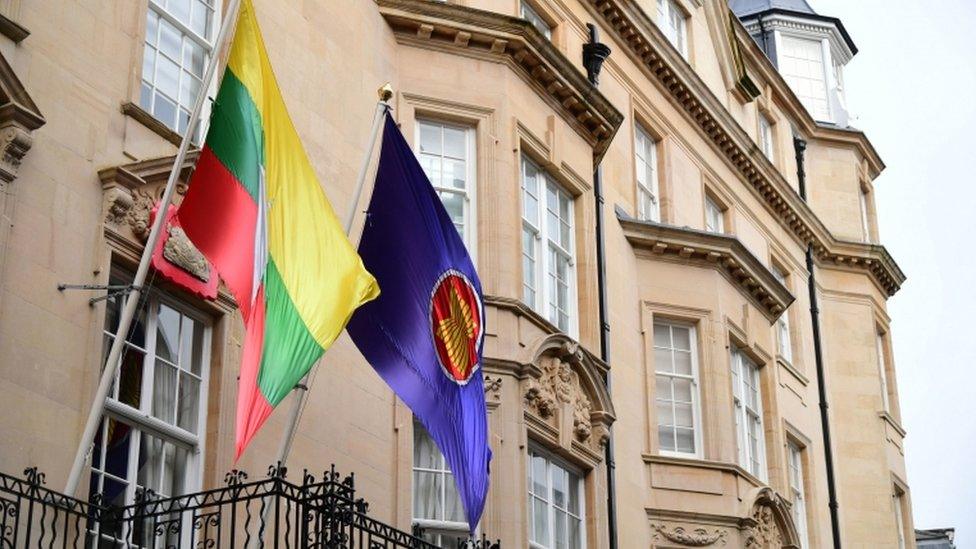
- Published9 March 2021
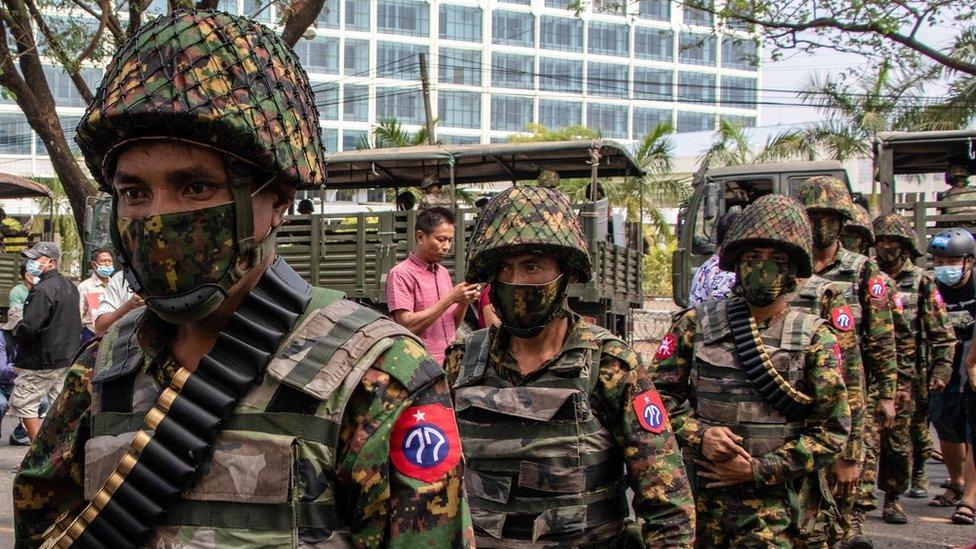
- Published13 February 2021
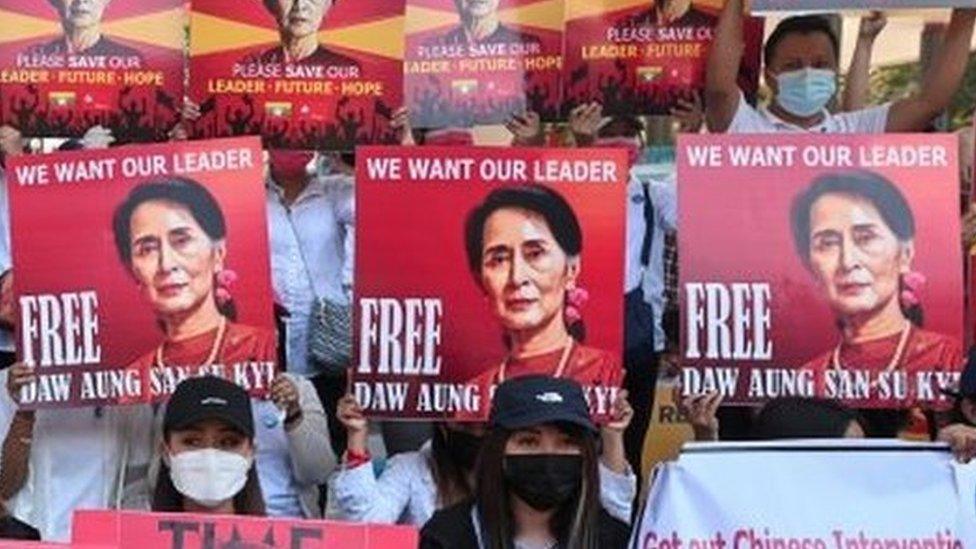
- Published26 February 2021
